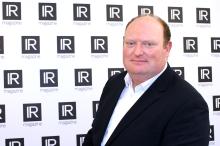Customer and investor preferences are changing, with new generations more willing to waive financial merit for ESG – and institutions need to be aware of this.
So said IROs in one of several roundtable discussions held during the ESG Integration Forum – Europe 2023, hosted by IR Magazine and Corporate Secretary, in London this week. Upcoming generations of investors are uncomfortable investing in the likes of Big Oil so the corporate ESG story has to be especially strong to win them over.

Retail and institutional investors require different ESG messaging, delegates thought. Institutional investors were seen to be more aware and in need of more mature ESG communication, while retail investors were judged to be more liable to be activist shareholders when it came to ESG.
Diversity, equity and inclusion (DE&I) were hailed as priorities that were taken seriously by companies but the issues were recognized as highly nuanced and challenging to meet, such as the availability of diversity in the labor market for certain sectors. IROs thought companies would have to look at diversity in its wider sense, not just ethnic groups and gender, but also socio-economic backgrounds, as the next step. Communicating DE&I data was thought to be key and best achieved by telling engaging stories.
Plain-talking and transparency
‘Ecosystem’ was described by some as a better and broader word than ‘shareholders’, given the number of disparate parties IR professionals deal with. IROs heard calls for plain talking and avoiding jargon in improving ESG communications and mentioned Scope 1-3 definitions and ‘materiality’ as potentially baffling terms.
Transparency was most called for from investors, delegates said at the table. Financial communications needed to make ESG understandable but many companies felt they were missing that goal. Clients and companies worried about the different nuances of ESG, that if they haven’t worded it a certain way in disclosures and annual reports, they fall short of expectations.

Corporates need a much more hands-on relationship with regulators and rating agencies, delegates said. Regulators should become one body so ESG regulations can become easier to understand for investors and usable for companies, representatives claimed. Ratings will become more accurate for companies with better communication.
But becoming an ESG specialist was described as a ‘big ask’ for one person to cover all its aspects. An ESG spokesperson would be a better fit, depending on the size of the company. Large-cap companies can call on analysts but smaller companies don’t have the bandwidth, delegates heard.










